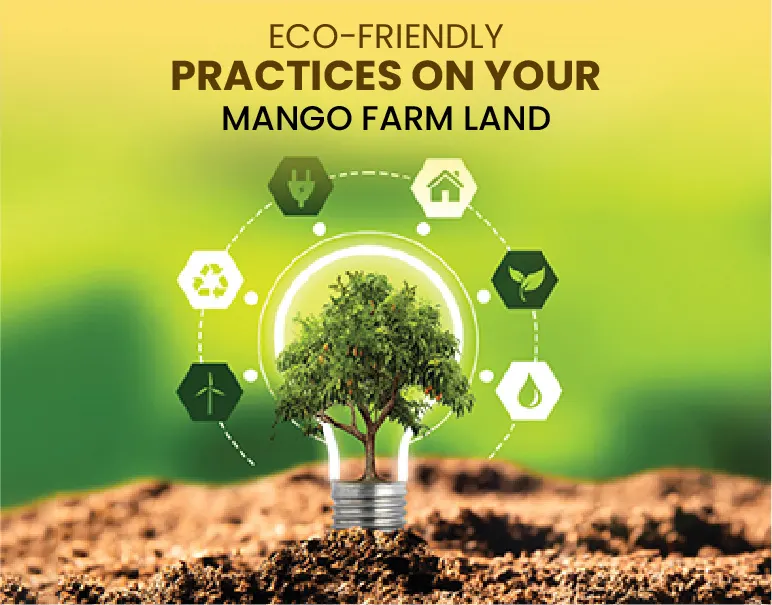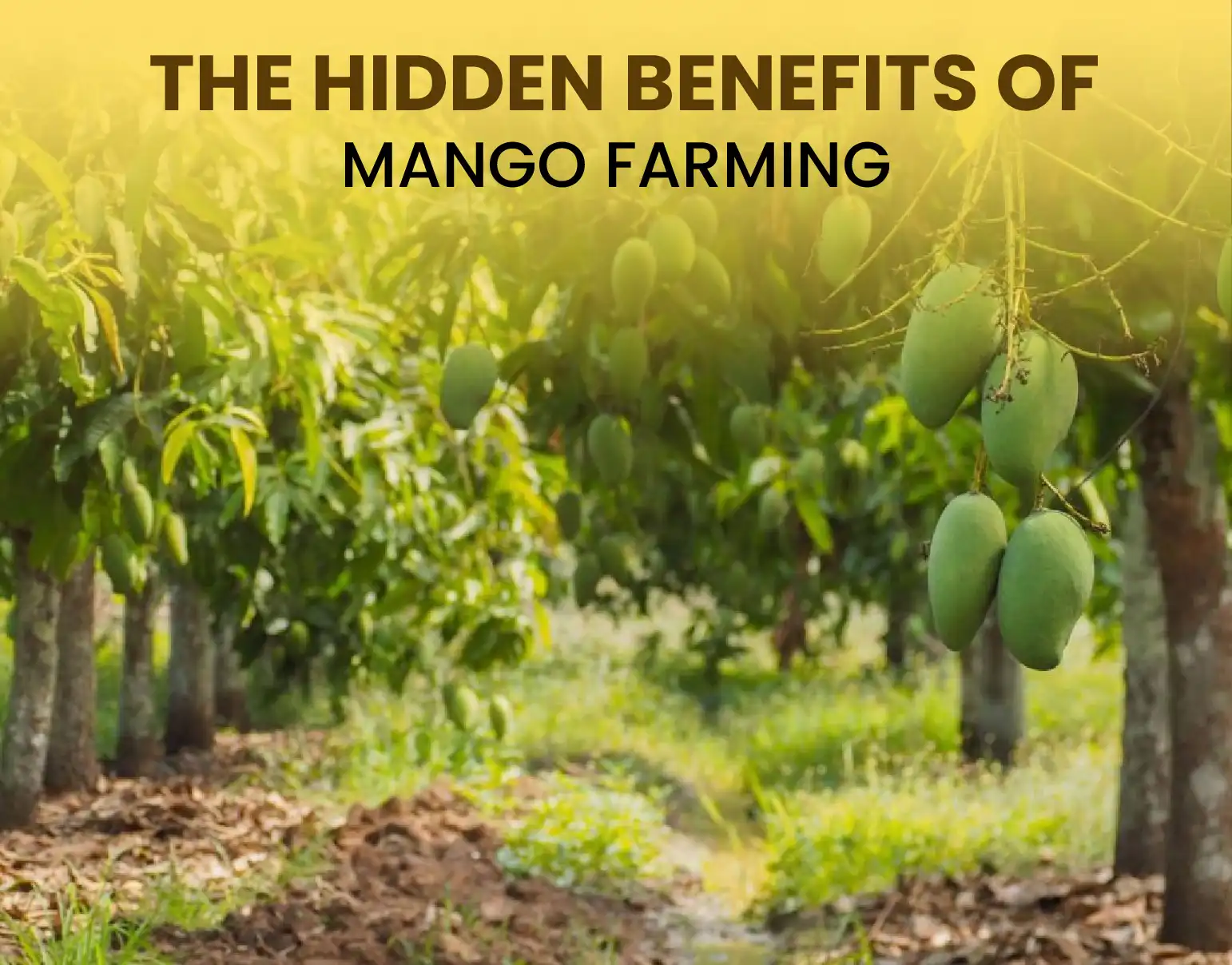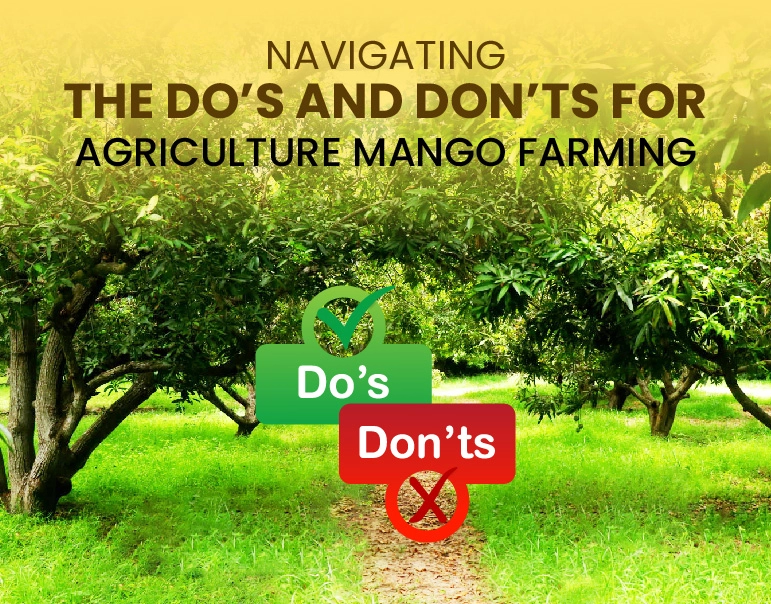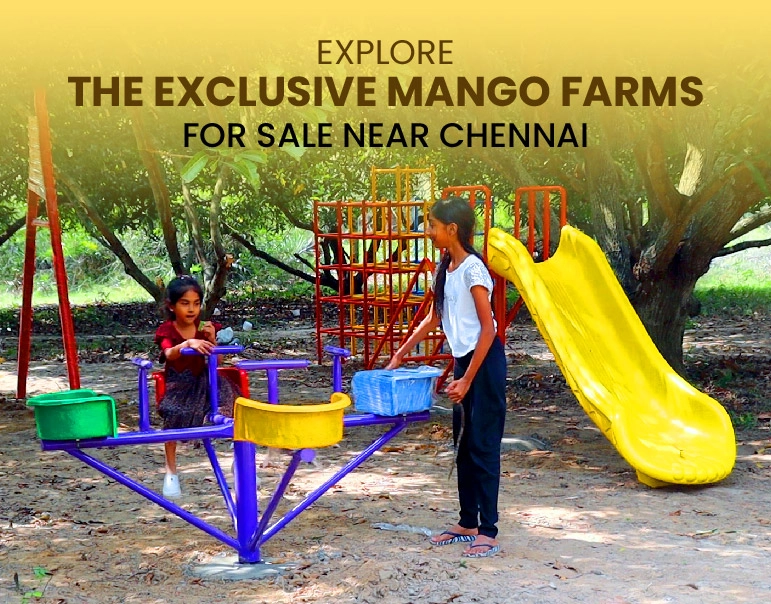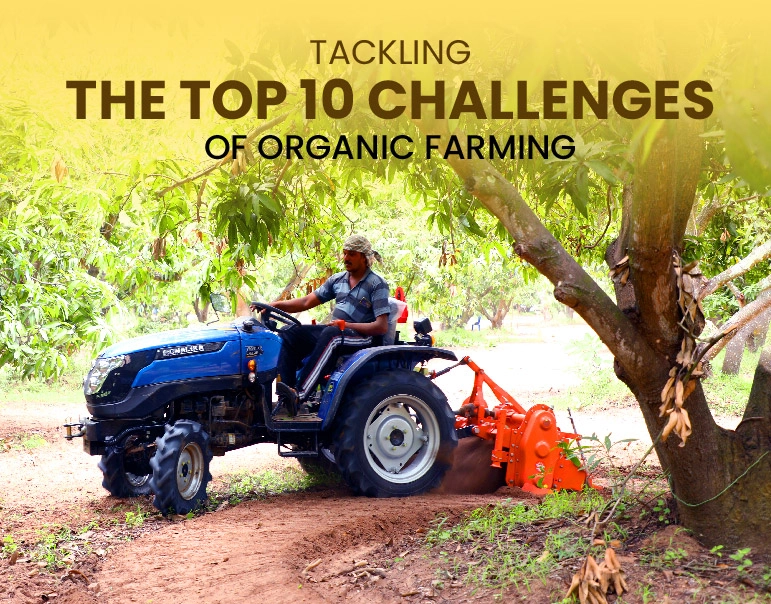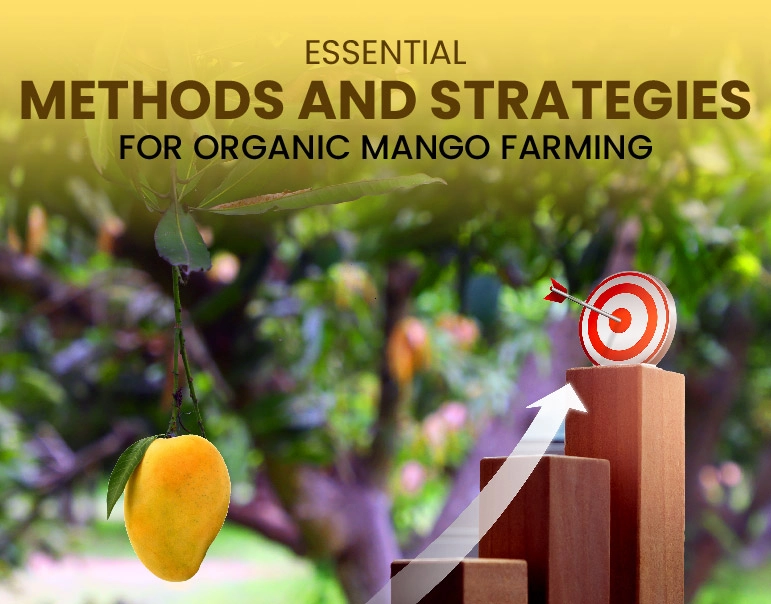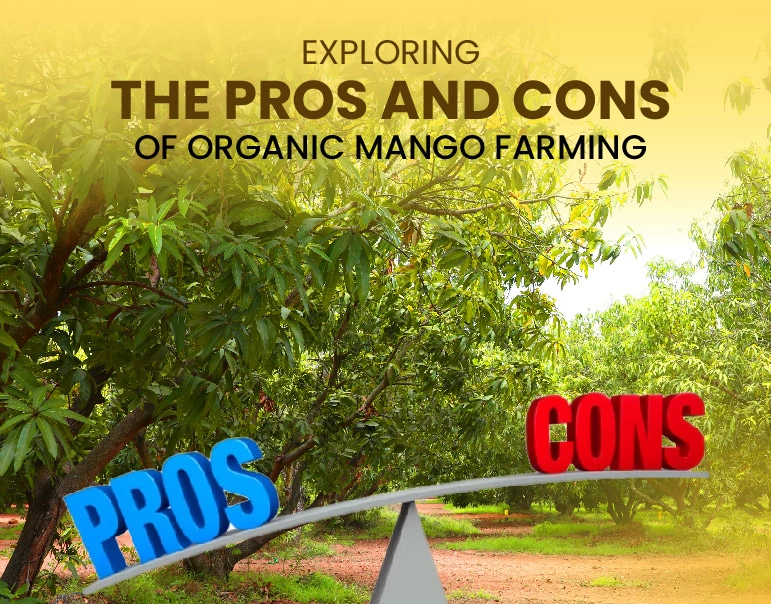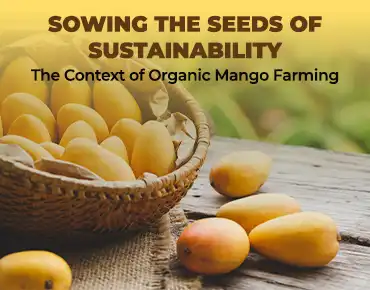Essential Methods and Strategies for Organic Mango Farming
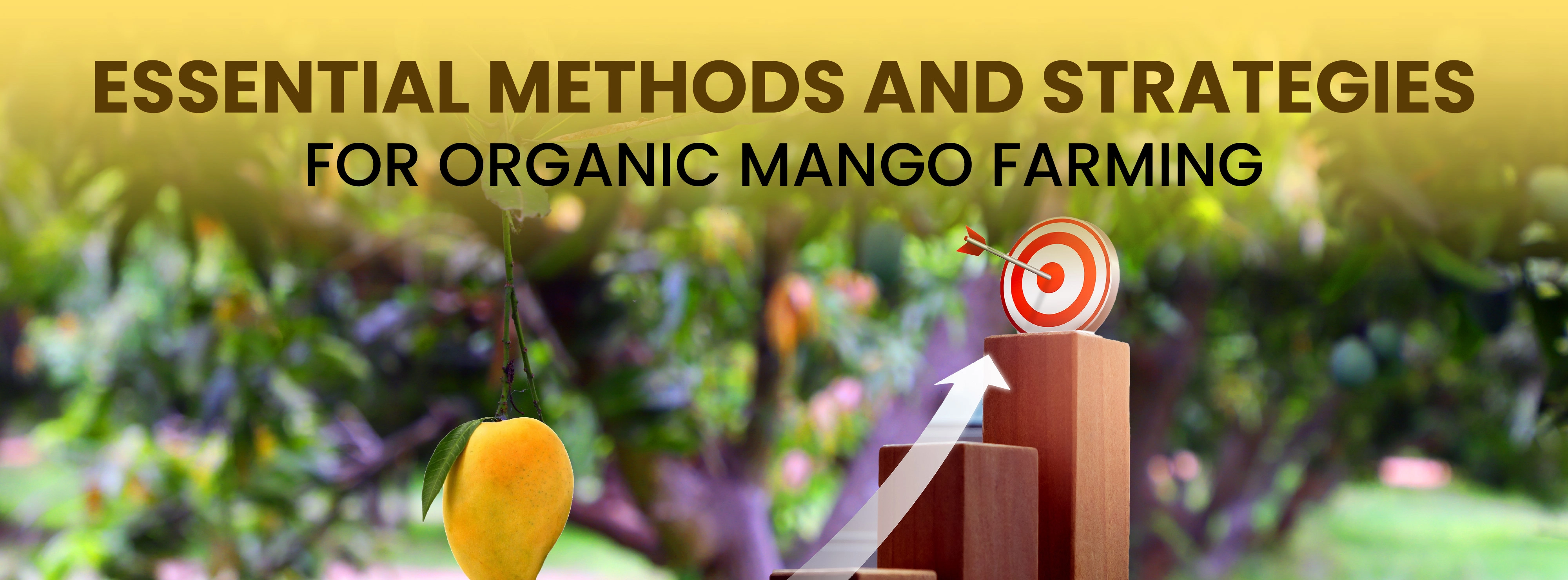

Organic mango farming has emerged as a sustainable practice, prioritizing ecological balance and human health. With a focus on natural techniques and mindful management, organic mango farmers strive to produce high-quality fruit while minimizing environmental impact. In this comprehensive guide, we explore five essential methods and five strategic approaches that form the foundation of successful organic mango cultivation, ensuring both productivity and sustainability in mango farmland.
Organic mango farming begins with nurturing healthy soil ecosystems. Farmers employ composting, where organic matter like crop residues, kitchen scraps, and animal manure undergo decomposition to create nutrient-rich compost. This compost serves as a natural fertilizer, enriching the soil with essential nutrients and fostering microbial activity crucial for plant health. Additionally, cover cropping, the practice of growing nitrogen-fixing plants like legumes between mango trees, helps replenish soil fertility and prevents erosion, promoting long-term soil health and sustainability.
Natural Pest Control:Effective pest management is integral to organic mango farming without relying on synthetic pesticides. One method is deploying biological control agents, such as predatory insects and beneficial nematodes, to control pest populations. For instance, introducing ladybugs and lacewings helps combat aphids, mites, and common mango pests, while maintaining ecological balance. Furthermore, cultural practices like pruning infected branches and removing fallen fruits disrupt pest life cycles, reducing pest pressure naturally. By integrating these diverse pest management strategies, organic mango farmers mitigate pest damage while preserving ecosystem health.
Water-efficient Irrigation Systems:Water conservation is paramount in regions prone to drought and water scarcity. Organic mango farmers implement drip irrigation systems that deliver water directly to the root zone of trees, minimizing evaporation and runoff. This targeted approach optimizes water usage, ensuring trees receive adequate moisture while reducing waste. Mulching, covering the soil surface with organic materials like straw or leaves, further enhances water retention by reducing soil moisture loss through evaporation. By adopting these water-saving techniques, organic mango farmers promote sustainable water management practices and mitigate the impact of water scarcity on orchard productivity.
Integrated Orchard Management:Integrated orchard management practices aim to optimize ecosystem services and minimize external inputs. This approach involves intercropping mango trees with companion plants that provide multiple benefits, such as pest repellent, soil enrichment, and pollination support. For instance, planting marigolds or neem trees around agricultre mango farmland can deter pests and attract beneficial insects, reducing the need for chemical interventions. Additionally, incorporating diverse vegetation promotes biodiversity, creating a resilient agroecosystem that can better withstand environmental stresses and pest outbreaks.
Post-harvest Handling and Marketing:Post-harvest handling and marketing strategies are crucial for maximizing the value of organic mangoes. Farmers employ careful harvesting techniques to ensure fruit quality and minimize damage. Proper storage facilities with controlled temperature and humidity conditions help prolong shelf life and reduce post-harvest losses. Moreover, effective marketing strategies, such as certification as organic produce and direct sales to consumers through farmers' markets or online platforms, help organic mango farmers capture premium prices and build consumer trust in their sustainably grown fruit.
Implementing crop rotation strategies helps break pest and disease cycles while enhancing soil fertility. Alternating mango cultivation with nitrogen-fixing legumes or other crops prevents soil depletion and reduces reliance on external inputs.
Pest Monitoring and Forecasting:Regular monitoring of pest populations and weather conditions enables farmers to anticipate pest outbreaks and take timely preventive measures. Utilizing weather data and predictive models enhances decision-making and minimizes crop losses due to pest damage.
Community Engagement and Education:Engaging with local communities and sharing knowledge about organic farming practices fosters a supportive network and promotes the adoption of sustainable agriculture. Educational workshops, field demonstrations, and farmer cooperatives facilitate knowledge exchange and collective action for the benefit of all stakeholders.
Soil Health Assessment and Management:Conducting regular soil tests to assess nutrient levels and soil health parameters guides informed decision-making regarding soil amendments and fertility management. Implementing soil conservation practices, such as contour plowing and terracing, prevents soil erosion and degradation, ensuring the long-term productivity of mango farm.
Certification and Market Access:Obtaining organic certification from recognized certifying bodies enhances market access and enables organic mango farmers to access premium markets domestically and internationally. Compliance with organic standards demonstrates a commitment to sustainable practices and assures consumers of product quality and integrity.
Organic mango farming requires a holistic approach encompassing both methods and strategies that prioritize ecological balance, soil health, and sustainable practices. By implementing organic soil enrichment, natural pest control, water-efficient irrigation systems, integrated orchard management, and post-harvest handling practices, coupled with strategic approaches like crop rotation, pest monitoring, community engagement, soil health management, and organic certification, farmers can cultivate success while safeguarding the environment and ensuring the long-term viability of organic mango farming. Through innovation, collaboration, and a commitment to sustainability, organic mango farmers can continue to meet the demand for high-quality, responsibly grown fruit while preserving natural resources for future generations.
